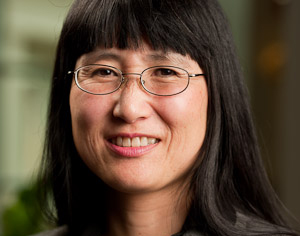UNMC will begin organizing its response to the Japanese earthquake disaster at a meeting Monday in the Sorrell Center.
 |
Shinobu Watanabe-Galloway, Ph.D. |
The quake rocked northern Japan and unleashed a tsunami that sent walls of water washing over coastal cities. More than 13,000 people are confirmed dead so far and another 14,377 are still listed as missing. The quake also damaged a nuclear power plant, which is leaking radioactive materials.
Open to the public, registration begins at 5:30 p.m. with a reception in the second floor commons area, followed by a 6 p.m. meeting in the Maisie Paustian Amphitheater, Room 3001.
|
Campus, city and Japanese leaders will speak about relief efforts underway or being planned in the city. Speakers are:
- George Behringer, honorary consul general of Japan;
- Omaha Mayor Jim Suttle;
- Ayman El-Mohandes, M.B.B.Ch., M.P.H., dean of College of Public Health;
- David Crouse, Ph.D., interim vice chancellor of academic affairs; and
- Kazuhito Sakamoto, Ph.D., research assistant professor, Eppley Cancer Institute.
Three areas of need have been identified so far, Dr. Watanabe-Galloway said. They are:
- Children — organize a letter writing campaign to show support and care for the school children. The Boy Scouts will be one of the major partners. The campaign may evolve into raising funds for school supplies.
- Social support and mental health service — work with health professionals specializing in post traumatic stress disorder (PTSD) to identify ways to provide education/services.
- Fundraising — work with Japanese emergency organizations and universities to identify specific needs in the communities in three prefectures most affected by the disasters.
“We are getting a great response from the community. A lot of people want to do something, and want to do something right now,” she said. “But we need to learn the need first. If we just send people and supplies over now without a plan, we can do more harm than good.
“Our response should be planned and efficient.”
Dr. Watanabe-Galloway has already done so many things in such a short amount of time. I feel so fortunate to have her as the leader! Let's make this community event successful for those people who were affected by the devastation…